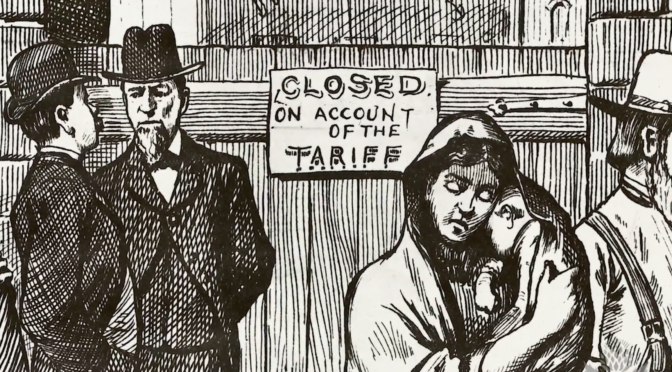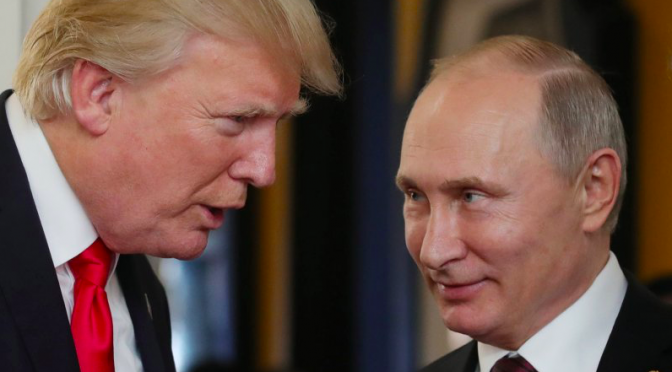Donald Trump’s attacks on parents who buy a lot of toys for their children have nothing to do with dolls or pencils. His recent comments have made some parents think, “I feel guilty about how many possessions my kids have; maybe Trump’s right and they SHOULD have fewer toys.” But he’s just attempting a diversion from the real issues he doesn’t want you to think about.
A Way to Shift More Power to the Richest 1%
Do you think Trump ever gave a thought to whether rampant materialism would make his children more selfish or shallow? Of course not. He doesn’t want you thinking about how he’s trying to create a future with even greater wealth inequality. He supports the restrictions on freedom, product availability, and product quality caused by restricting market availability. He likes billionaire-owned companies that engage in monopolistic practices. He’s all for power grabs by autocratic government entities and corrupt politicians—as long as he gets a cut.
The autocrat in chief and his friends want to tell you what you should and shouldn’t be able to buy, at what prices, and from whom. They want to control the market so they can create more opportunities for themselves to receive more financial kickbacks or power. Their support for heavy tariffs is about increasing their power while taking away yours.
Free Trade Increases Peace, Prosperity & Safety
Isolationism doesn’t make a nation stronger, safer, happier, healthier, or more peaceful. Strong international relationships, including trade, lead to a greater variety of available products, lower prices, and many more chances to buy things of better quality. People have known this for literally thousands of years. By trading with other countries, all countries involved can optimize sales of products they’re good at and that they have enough resources to create. That way nations can import things that are too hard or expensive to make at home, improving the standard of living across nations.
Greater access to affordable commodities leads to fewer wars. Wars interfere with the benefits of free trade, destroying trade routes and stopping the influx of needed materials, and the outflow of products from exporters who rely on foreign markets.
Beneficial Trade Agreements Lead to “Soft Power”
Making trade with other countries easier and more affordable makes our trading partners fonder of our products, sure. It also makes them fonder of us as people. The incentives to treat our trading partners with greater respect and appreciation lead to warmer relations. When we make trade deals, we also build positive relations that give us “soft power”—the power that comes from positive feelings, trust, and mutual respect. Strong trade agreements can lead to greater tourism, cross-border business deals that allow for faster innovation and business growth, stronger border agreements, and more information sharing regarding health and security matters. Strong trade agreements also help countries build alliances against rogue states who might want to attack or invade them.
Limiting Trade Restricts Freedom
Adding heavy tariffs and destroying trade agreements benefits oligarchs and corrupt government officials. Such people have the power or money to create regional monopolies, decide what items the market will or won’t sell, and push resources toward their favorite suppliers. When oligarchs and autocrats are in charge, they make international trade agreements giving lower tariffs to countries that promise to bend the knee politically, or that pay kickbacks to corrupt officials in our country.
The reason for Trump’s tirades about how many dolls or pencils small children own isn’t based in concern over modern child-rearing methods. He’s not stoking your guilt because he cares about your children’s welfare. Trump harps on dollies and pencils because he doesn’t actually believe in a free market. He wants to up-end conservative support for free-market capitalism, the holy grail of traditional Republicanism.
For its many faults, pure free-market capitalism does support the freedom to buy what you want, whether the purchase is wise or foolish, well-made or shoddy, bad for you or good, as long as you can pay for it—or can pay the bank fees on your line of credit. A free-market economy is the antithesis of having a government entity tell you what you can and can’t buy, use, or enjoy. It also tends to lower prices, and lower prices on commodities means increased freedom and opportunity to buy exactly what you want, at a price you can afford.
Protectionism & Isolationism Don’t Lead to Safety or Prosperity
Protectionism is the belief that taxing imported goods more highly, restricting or refusing their importation, and giving special deals to domestic businesses benefits domestic businesses and helps one’s own nation’s economy to grow while avoiding providing unfair benefits to those outside one’s borders. Isolationism, which often increases at tiems of greater protectionism, preaches that outsiders, their products, and their ideas are not to be trusted, and that we leave ourselves weakened and vulnerable if we make treaties, trade agreements, or join organizations like the United Nations that seek to create international legal structures and encourage economic, social, and health equality.
Such “America first” protectionist and isolationist politics and economic leanings have been popular at various times during the last two centuries. Many who have followed them believed that such policies would exclude unwanted “foreign influences” on culture and business, and would avoid the dilution of a supposed American way of life.
The result of this distrust of interactions with outsiders has instead often been a more insular way of thinking that led to greater xenophobia. What’s more, protectionism and isolationism left U.S. businesses and financial institutions at greater risk of failure because they did not diversify their funds, product pipelines, or markets across national or continental borders.
Doesn’t Capitalism Have Significant Flaws?
Free-market capitalism tends toward rampant materialism and encouraging ever-expanding markets, even when that causes pollution, dwindling natural resources, or social problems. It supports a mentality that says buying more is necessarily better, and that your success and appeal are based on what and how much you buy. It encourages waste and disposal instead of repair or reuse of resources.
Clearly, this system has many terrible flaws. But there are limitations on these downsides, including environmental impact laws and free-trade agreements that ameliorate many downsides of unfettered capitalism.
For millions, the chief attraction of a free market is that it supports the individual’s freedom to choose what to purchase and how much, IF a person has sufficient capital to do so. A good thing about a free market open to many sellers and buyers is that competition provides downward pressure on prices, and it tends to push the worst products out of the market based on lower demand. Those who can provide a greater variety of goods at better prices tend to do better.
Antitrust Laws Help Balance Free Markets
For the past century, the U.S. has had strong antitrust laws to avoid monopolistic practices (like having one big company buy up or destroy all its competitors, thereby driving up prices and driving down quality). Limits on monopolies help us avoid price-gouging and lowering of quality standards, and allow small businesses to compete more fairly with larger ones.
Other Laws Affecting Free Markets in the U.S.
Over the past century the U.S. has also developed a strong legal framework regarding the health and safety of products sold in the U.S. We’ve also passed thousands of laws about the safety and working conditions of those who produce goods and services on U.S. soil. These laws help to ameliorate further downsides of expanding markets. These include risks to human beings that are increased when competitiveness is prized above health, safety, and wellbeing.
Heavy Tariffs Are Hardest on Small Businesses
On the other hand, creating significant impediments to free trade through untargeted tariffs widens imbalances between resource-rich and resource-poor countries and people. This often leads to greater hostility between nations, and between people of different financial means. Smaller, more entrepreneurial companies bear the greatest brunt of high tariffs, and are at greatest risk of failure because they don’t have the scale and resources to pay huge tax levies or customs bills.
Higher Tariffs on Imports Can Lower Our Own Standard of Living
When Trump slaps tariffs on foreign-made goods imported to the U.S., he drives up prices at home, destroys jobs, crushes U.S. businesses and industries that rely on export sales, and destroys the trust of other nations in our government, or financial instruments, and our companies. The primary reason for a U.S. president to do that is so he and his friends and family can make more money and consolidate more power by taxing people in the U.S. who want or need imported goods. This takes money from everyday people and lowers their standard of living.
That shift, which disempowers the vast majority of the U.S., is the point of this unnecessary financial mess. Trump doesn’t care about you or your child. He doesn’t want to reset U.S. buying habits out of concern for the moral or financial welfare of the nation’s people. He just wants to grab a greater share of your resources for himself and his buddies.
Don’t fall for it.



